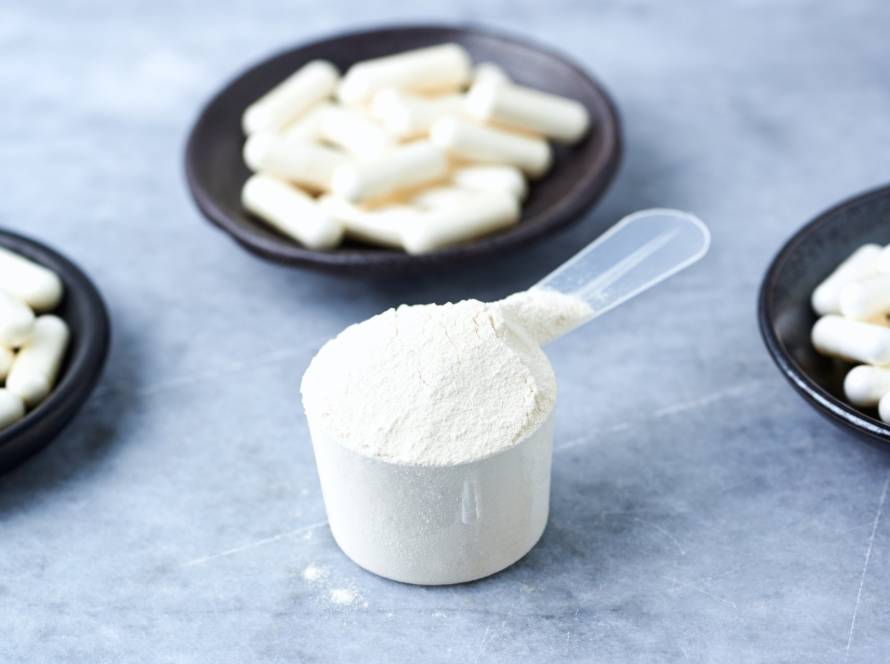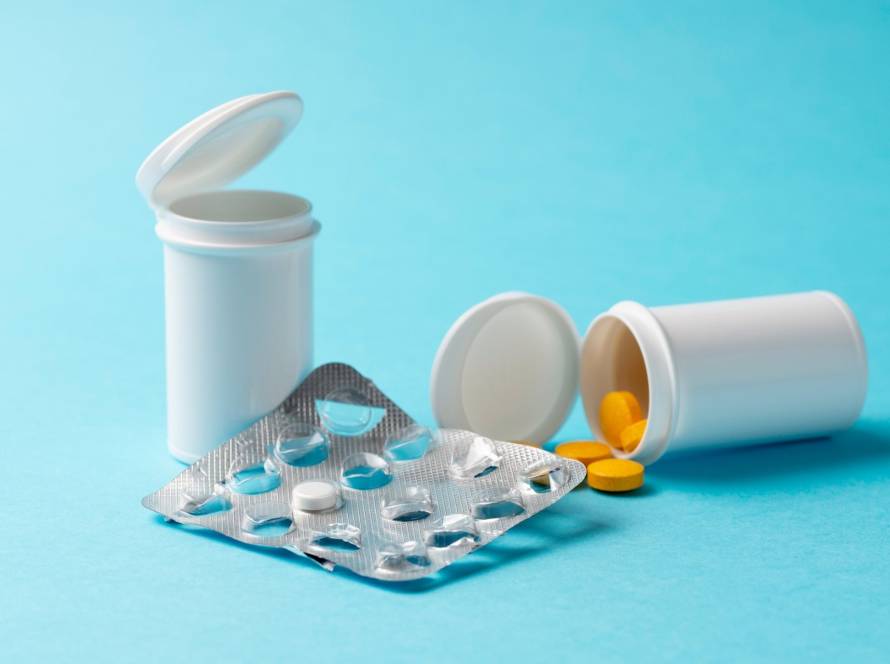Creatine stands out as the most effective ergogenic nutritional supplement available today. Its remarkable potential reaches way beyond athletic performance. Our body creates this natural compound at 1 to 2 grams daily through the liver, kidneys, pancreas and brain.
This piece explores what benefits does creatine have. We’ll look at its effects on physical performance and its promising role in cognitive function and healthy aging.
What are the advantages of taking creatine?
Creatine offers a wide range of benefits for both physical and mental performance. It’s best known for improving strength, power and muscle growth, making it a popular supplement among athletes and fitness enthusiasts. Beyond the gym, creatine supports brain health by enhancing energy production in brain cells, which may improve memory, focus and resistance to mental fatigue.
Research also suggests it may protect against age related muscle loss, support metabolic function and even offer neuroprotective effects. Overall, creatine is one of the most well-studied and effective supplements for boosting energy, performance and healthy aging.
What is creatine and how does it work?
Creatine is a nitrogenous organic compound that our bodies naturally create. This compound plays a vital role in energy metabolism. The small molecule works at the cellular level and supports faster energy production, especially when we have high-intensity activities.
Creatine’s role in cellular energy production
Creatine’s main function comes from its ability to form phosphocreatine (PCr), which acts as a quick energy reserve in tissues that need lots of energy. Cells absorb creatine and the enzyme creatine kinase (CK) starts a reversible reaction. This reaction moves a phosphate group from ATP to creatine, which creates phosphocreatine. The process reverses during intense exercise or times when we just need energy – phosphocreatine gives its phosphate group to ADP and quickly regenerates ATP.
The ATP-PCr system becomes most important in the first 5-8 seconds of maximal effort. The human body makes only about 250g of ATP each day, but amazingly recycles its entire body weight in ATP through the creatine phosphate system.
The creatine system keeps cellular energy balanced by:
- Providing quick ATP replenishment during high-intensity activities;
- Keeping the ATP/ADP ratio stable in cells;
- Acting as a spatial energy buffer that moves energy from mitochondria to the cytosol;
- Lowering calcium leakage from the sarcoplasmic reticulum;
- Possibly reducing reactive oxygen species formation.
Where creatine is stored and how it’s made
Our bodys skeletal muscles hold about 95% of its creatine pool. We can also find creatine in other tissues that need lots of energy, including the brain, heart, liver, kidneys, inner ear cells and reproductive tissues.
Our body creates creatine through two steps:
- The enzyme arginine: glycine amidinotransferase (AGAT) moves an amidino group from arginine to glycine and produces guanidinoacetic acid (GAA);
- Guanidinoacetate N-methyltransferase (GAMT) methylates GAA using S-adenosylmethionine as the methyl donor to form creatine.
The liver, kidneys and pancreas make about 1 gram of creatine daily. Food sources, mainly red meat and seafood, provide the rest needed for optimal levels.
How supplements increase creatine availability
Creatine supplements can boost creatine stores beyond what diet and natural production provide. Creatine monohydrate (CrM) remains the most studied and effective form.
Our blood’s creatine levels rise substantially after taking it, up to 50-fold within 2.5 hours of consuming a 20g dose, according to research. Special transporters, called sodium and chloride, dependent creatine transporters (CrT or SLC6A8) help this circulating creatine enter target tissues.
Brain creatine increases slower than muscle creatine. We need higher doses (15-20g daily) over longer periods (2-4 weeks) to substantially raise brain creatine in healthy people. This happens because creatine has a harder time crossing the blood-brain barrier than entering muscle tissue.
Creatine supplements optimize cellular energy production by giving our body plenty of raw material for the phosphocreatine system. This enhances our body’s ability to quickly regenerate ATP during high-energy demands.
Physical performance and muscle health
Creatine does more than just boost energy, it’s backed by the largest longitudinal study of supplements that improve physical performance. Research shows it powerfully affects many aspects of fitness and muscle health.
Improved strength and power in high-intensity exercise
Studies show creatine supplements make a remarkable difference in high-intensity workouts. Performance improvements range from 5-15%. Weight lifters see even better results, their maximum bench press strength increases by 3-45%.
The benefits show up in many activities:
- Sprinters run faster;
- Weight lifters do more reps;
- Cyclists generate more power;
- Team athletes sprint faster.
These improvements help short, intense activities more than endurance training. The strength gains last too, when we combine creatine with resistance training, we’ll get stronger than with training alone. A 12-week study of trained men showed they lifted more in bench press, back squat and jump squat.
Faster recovery and reduced muscle damage
Creatine helps muscles recover better after tough workouts. Research proves it reduces signs of muscle damage, especially 48-90 hours after exercise.
The supplement also helps by:
- Lowering inflammation markers 24-36 hours and 48-90 hours post-workout;
- Reducing oxidative stress after intense activity;
- Easing muscle soreness 24 hours after exercise.
Recovery improves because creatine stabilizes cell membranes, fights oxidative stress and helps repair tiny muscle tears. Short term use reduces damage markers, but long term use might increase them, this likely means we can train harder rather than showing harm.
Support for muscle mass and hydration
Creatine visibly affects muscle mass. Muscles grow because creatine:
- Pulls more water into muscle cells;
- Activates satellite cells that repair muscle;
- Increases anabolic hormone production;
- Lowers myostatin, which normally limits growth.
Creatine improves hydration by pulling water into muscle cells instead of causing water retention under the skin. This cellular expansion creates pressure that stimulates growth.
Vegetarians and vegans benefit most from creatine supplements since their diets lack natural sources. Their gains tend to be larger because they start with lower creatine levels.
Cognitive and brain-related benefits
The brain uses an incredible amount of energy. This high energy requirement makes creatines effects on brain function really interesting.
Creatine’s role in brain energy metabolism
The brain uses creatine to store and move energy around, which helps keep ATP levels steady during mentally demanding tasks. This system plays a vital role in how well our neurons work. People with cerebral creatine deficiency syndromes show serious intellectual disabilities. Creatine supplements can partly reverse these conditions.
Studies show that taking creatine by mouth raises brain creatine levels, though not as quickly as it does in muscles. Our brain needs higher doses (15-20g daily) for longer periods (2-4 weeks) to boost creatine levels by a lot. These higher levels help cellular energy production and might kick-start AMPK pathways to boost mitochondrial health and function.
Effects on memory, focus and mental fatigue
New research highlights creatine’s benefits for brain function, especially memory. A newer study found that creatine supplements improved memory more than placebos. Older adults (aged 66-77) saw the biggest improvements. One study showed better forward number recall, backward and forward spatial recall and long-term memory after taking creatine (20g/day for 7 days).
Creatine also helps with:
- Less mental tiredness during tough thinking tasks;
- Better processing speed with big gains in language (29.1%), logic (16%) and numeric (24%) tasks;
- Better intelligence and reasoning skills.
These benefits really stand out when our brain faces challenges like lack of sleep, mental exhaustion or low oxygen. One study found that a single large dose of creatine cut fatigue by about 8% during sleep deprivation. This suggests it could help during times of mental stress.
Potential in neurodegenerative conditions
The sort of thing I love about creatine is its potential to help with neurodegenerative conditions that affect energy metabolism. Research shows creatine might protect brain cells by:
- Better energy balance in early Alzheimer’s;
- Protecting important enzymes from oxidative damage;
- Slowing down Parkinson’s progression, with positive Phase II trial results;
- Possible benefits for ALS and Huntington’s disease patients.
Creatine seems to protect neurons by managing energy needs, boosting mitochondrial function and possibly reducing oxidative stress and inflammation. Research keeps moving forward, but current evidence suggests creatine could be great for boosting brain function and protecting neurons. This makes it worth thinking about beyond just athletic performance.
Systemic health and emerging applications
Creatine’s cellular energy support works throughout the body and its benefits are way beyond the reach and influence of muscles and brain. New research shows its effects on metabolic health, cardiovascular function and its applications in immunity and skin physiology.
Glucose metabolism and insulin sensitivity
Creatine supplements show promising results on glucose regulation, especially when we have exercise. Research shows that creatine might boost glucose transport into muscle cells because it increases GLUT-4 translocation to the sarcolemma. This process helps improve insulin sensitivity and glucose metabolism.
Lab studies reveal that creatine supplements increased glycogen content by approximately 18% in young adults. One cross-over study with type 2 diabetes patients showed that creatine supplements (6g daily for 5 days) worked as well as metformin to lower blood glucose.
Heart health and ischemic protection
The heart needs creatine for energy production and contractile function. Heart failure patients show that creatine and phosphocreatine levels decrease by a lot due to downregulation of the creatine transporter. This decrease associates with reduced left ventricular ejection fraction and predicts mortality.
Clinical trials that learn about creatine’s cardiac benefits have shown positive results. A randomized, placebo-controlled study found that heart failure patients who took creatine with coenzyme Q10 had higher peak oxygen consumption without side effects. Early data suggests that creatine supplements might protect against anthracycline-induced cardiac toxicity during chemotherapy.
Creatines role in immune and skin health
New research reveals creatine’s surprising effects on immune function. Recent studies show that creatine supplements boost anti-tumor immunity by increasing ATP production in macrophages. Mouse studies showed that creatine reduced tumor growth by a lot through better macrophage function and more tumor antigen-specific CD8+ T cells.
Skin health improves with topical creatine application and helps fight aging effects. Studies show that creatine gets more and thus encourages more dermal collagen synthesis, increases cellular water content and might protect skin DNA from UV damage. Clinical research suggests that creatine-containing creams can reduce wrinkles and improve aging skin’s viscoelastic properties.
Creatine’s impact on cognitive function is substantial and it helps boost memory and mental performance under stress. The brain’s energy metabolism improves noticeably according to research. This makes it valuable for older adults who want to keep their minds sharp.
The most exciting developments are creatine’s roles in healthy aging and longevity. Research reveals how it helps preserve muscle mass, supports bone density and keeps cellular energy production strong throughout life. On top of that, it shows promising effects on blood sugar control, heart health and immune system function.


